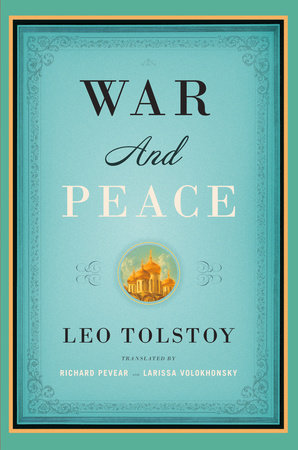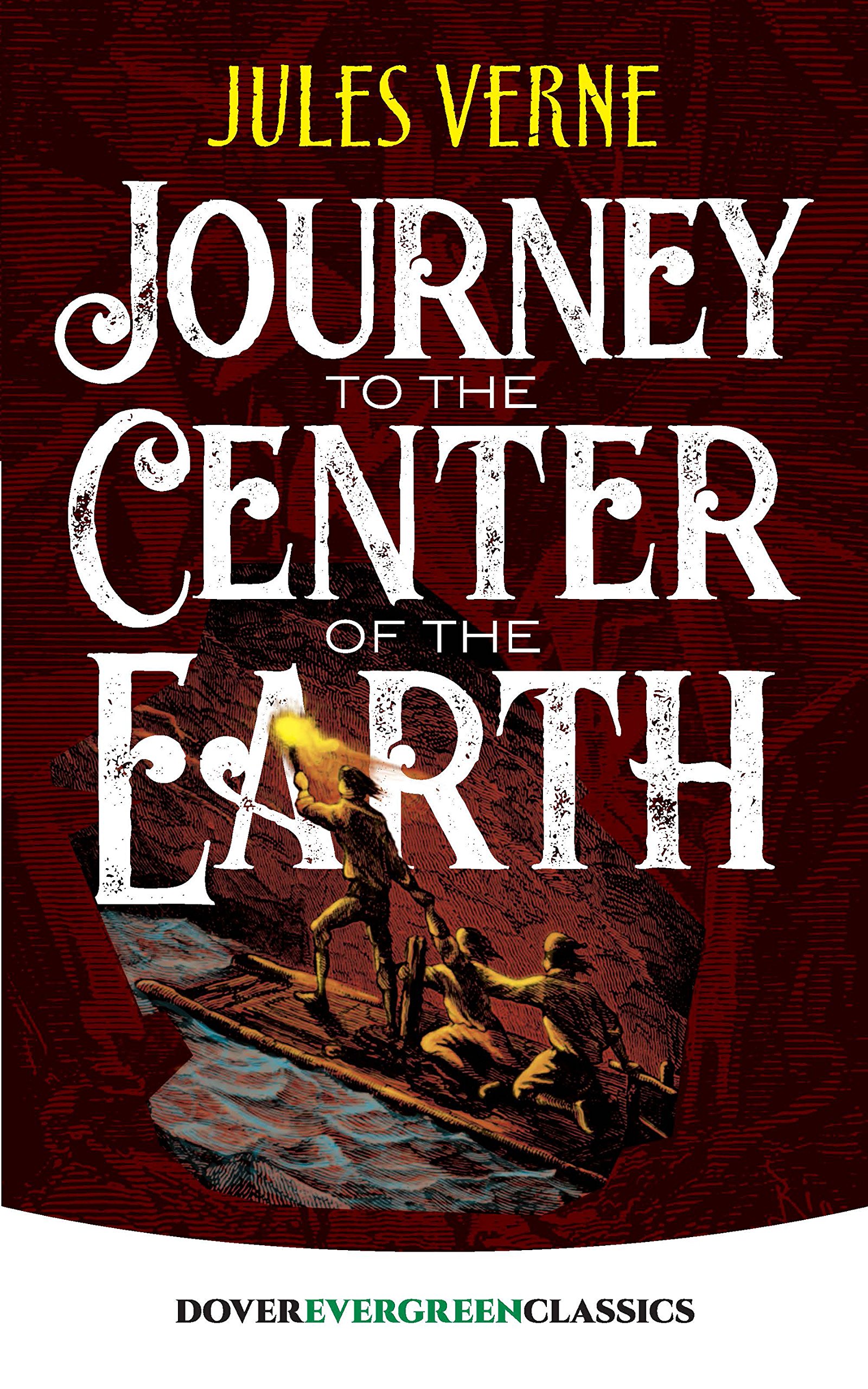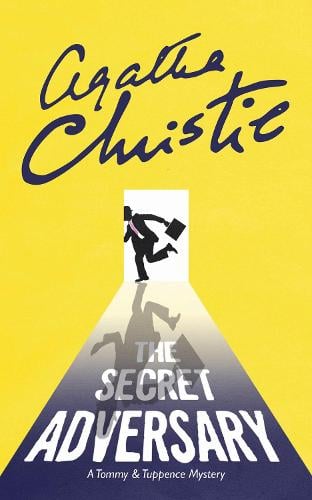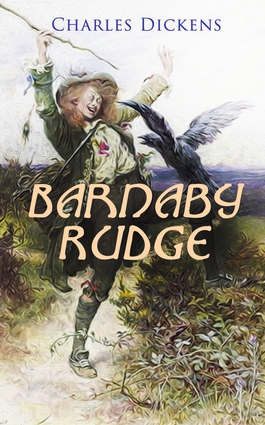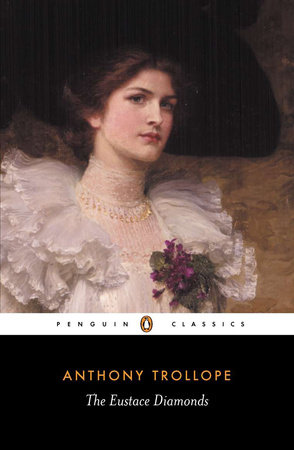Reviews of books, period dramas, and a few other things. Updates every Sunday and Wednesday.
Wednesday, 23 September 2020
Review: Mike and Psmith
Wednesday, 16 September 2020
Review: Jennings Novels
Nothing like some comedic novels to brighten your day! (Especially when there's nothing humorous to be seen in the real world...)
Wednesday, 9 September 2020
Review: Ivanhoe (novel)
Wednesday, 26 August 2020
Review: The Hunger Games (novels)
I'm back at last! And I finished my novel 😊 Now for a review of a series I reread recently.
Why do dystopian novels always feel the need to shoehorn in a romance (or "romance") subplot? Not even 1984 was exempt from this. There are some genres where romance is just plain out-of-place. This is one of them.
The Hunger Games is a trilogy of novels by Suzanne Collins, published between 2008 and 2010. The books have been adapted into a series of films. A prequel was published this year. I haven't read it yet, and after reading the summary I'm not sure I want to.
Almost everyone knows the basic story by now. A dystopian government forces teenagers to fight to the death for the people's entertainment. It's done this for years, and finally someone does something to stop it.
My opinion of this series has changed every time I read it. When I first read the books shortly after they were published I loved them. Reread them a few years later and I was amazed at how boring they were. Now I've reread them for the third time, and I'm torn between both past opinions.
On the one hand, the depictions of the dystopian world of Panem and the fight to overthrow its evil government are riveting. On the other, every few chapters the plot grinds to a halt because Katniss can't decide which of her love interests she likes best. And that's the real problem with this series -- and with far, far too many others. Not only do many authors believe books have to include romance, they seem utterly convinced that there has to be a love triangle. Doesn't matter that hell has broken loose around the protagonists; they have to stop to angst over their romantic woes.
The Hunger Games isn't quite as bad an offender as certain other series. But it still has a pointless love triangle. Especially pointless because Gale and Peeta have virtually no distinguishing characteristics. There were times when I couldn't remember which of them I was reading about. By the third book I didn't even bother to read their scenes. This meant I didn't understand all of the plot, but it was that or be bored to death.
I like the books' world-building, plot, and (some of) the characters. If there was a version of the series that removed the love triangle and only focused on the story it would probably be one of my favourites. Unfortunately as it is, it's just average. I don't expect I'll reread it for a while.
Is it available online?: Not as far as I know.
Rating: 6/10.
Sunday, 28 June 2020
Review: The Hundred and One Dalmatians (novel)
The Hundred and One Dalmatians is a 1956 children's novel by Dodie Smith. It's her best-known work, even though most people think of the Disney film(s) rather than the book itself. A truly bizarre sequel, The Starlight Barking, followed in 1967 and was forgotten almost at once -- for very good reason.
In some ways the plot is the same as the more famous Disney adaptation. Cruella de Vil kidnaps fifteen Dalmatian puppies, and their parents set out to rescue them. But there are enough differences to surprise me when I first read it. Pongo's wife is called Missis; Perdita is a different dog entirely. The Radcliffs are called the Dearlys and their first names are never mentioned. There are two nannies instead of one. Cruella is married. The Badduns aren't the ones who kidnap the puppies. And instead of ninety-nine puppies plus two adults, there are ninety-seven puppies and four adults.
Not only is the book as funny as the animated film, it's even darker. Cruella and her henchmen are implied to be actual demons. As well as the "skin puppies for coats" plan, she's drowned over forty of her poor cat's kittens. (The cat gets her revenge in my favourite scene in the whole novel.)
Yes, the book's aimed at children. But I first read it as an adult, and I enjoyed every minute of it. The details about how the dogs communicate, how they see the world, and how they view humans as their pets make them incredibly, well, human while never forgetting they're dogs.
If you haven't read this book yet, you should find a copy as soon as possible. Even if you're no longer a child.
Is it available online?: Not as far as I know.
Rating: 9/10.
Sunday, 7 June 2020
Review: The Turn of the Screw (novel)
The Turn of the Screw is an 1898 novella by Henry James. It's been adapted into an opera, two ballets, and several films and miniseries.
The story begins when our nameless heroine accepts a job as a governess. Her employer asks her to take care of his niece and nephew, and to never contact him again. That should set alarm bells ringing at once. She takes the job anyway, only to quickly realise there's something sinister lurking in the house and targeting the children.
For some reason many readers think the story is very ambiguous. I can understand their confusion, since much of the writing is as clear as mud. But the actual plot is simple enough: ghosts are haunting the children. It baffles me to see academics trying to prove it's actually about the governess going insane. Why would anyone want to find a mundane explanation for a horror story when there's a perfectly good supernatural one?
What's even more confusing is the writing itself. Henry James was either paid by the word, or believed he should always use eighty words where one would do. (I haven't read any of his other works, so I don't know if he did this regularly.) If you took away all the digressions and needlessly-complicated passages you'd shorten the story to about two chapters -- and it would be all the better for it. The novella isn't very long, but wading through yet more dull passages that have nothing to do with the plot makes reading it a chore. After a while I gave up and skipped ahead to the parts that were actually about the ghosts.
By far the weakest parts are the characters and the ending. The characters have no personalities and are practically interchangeable. As for the ending, the governess drives one of the ghosts away and then Miles dies. For no reason. It ends there and you're left to wonder what the hell you just read.
This book is slow, plodding, and more than twice as long as it should be. As horror stories go I didn't even find it particularly scary. It's just plain dull.
Is it available online?: Yes, on Gutenberg.
Rating: 2/10.
Wednesday, 27 May 2020
(Not Really a) Review: First Impressions of War and Peace
In spite of being one of the best-known novels ever written, virtually no one knows what War and Peace is about. I'm almost twenty chapters in and I don't know what it's about either. It's supposed to be set during Napoleon's ill-fated invasion of Russia. But the invasion itself hasn't actually started yet. Instead of a wartime epic we're treated to the dull and plodding saga of Pierre Bezukhov, the Rostovs, and Prince Andrei, with guest appearances from some of the least memorable characters I've ever seen. Nothing actually happens in this saga. It's just a collection of conversations and scenes that feel more like a slice of life than an epic novel.
I have to say, it's a struggle to stay interested. It's even more of a struggle to keep track of who's who, who's related to whom, and who has more than one name. (Unfortunately almost everyone has more than one name.)
I'm tempted to either skip ahead to find where the war itself begins, or watch one of the more faithful adaptations and see if it can make the story interesting.
Will I finish the book? Will it become one of the few novels I abandoned in despair? Is it even worth the effort? I'll review it if I do manage to finish it -- something that looks increasingly unlikely. Until then, I'll try to get through a few more chapters.
Wednesday, 20 May 2020
Review: 1984 (novel)
1984 is a 1949 novel by George Orwell. Along with Animal Farm it's one of his most famous works. Parts of it have become entrenched in the English language (even if people don't realise where they come from). "Big Brother" and "thoughtcrime" are among the most recognisable. The novel has been adapted into at least two films and several radio versions.
The story follows Winston Smith, who has a job rewriting history for the Ministry of Truth (a misnomer if ever there was one!), as he tries to oppose the monstrous government he's living under.
Honestly, Winston, Julia, and all the other characters are the least interesting part of the book. What truly interests me is the horrific world they live in -- a world that every day looks more and more like ours. Mass surveillance? It's here. Propaganda? Everywhere you look. The "Clap for Carers" mania is essentially two minutes' hate without the hate (yet). Censorship? Videos criticising the lockdown have been removed from YouTube. An oppressive government? Reality has surpassed the novel; every single government has become Oceania in all but name.
I didn't enjoy this book. It was a tremendous struggle to finish and I don't want to read it again. But it's a book you absolutely should read. It'll terrify you, and hopefully it will make you think.
Rating: I honestly don't know how to rate it. 7/10 or 8/10, I suppose.
Is it available online?: Yes, on Gutenberg.
Wednesday, 13 May 2020
Review: Around the World in Eighty Days (novel)
Around the World in Eighty Days is an 1872 novel by Jules Verne. It's one of his most famous novels and has been adapted many times. (The most famous -- and best -- adaptation is of course the 1956 film, which is incidentally one of my all-time favourite films.)
Jean Passepartout wants a quiet life working for someone who doesn't travel much. Unfortunately for him he starts working for Phileas Fogg on the very day Mr. Fogg accepts a wager to travel around the world in eighty days. During the journey they face unexpected delays, rescue an Indian princess, and run into near-catastrophe on multiple occasions. To complicate matters, a detective is convinced Mr. Fogg is really a bank robber, and he follows them all over the world in an attempt to arrest him.
I've read the book at least ten times, but every time I start it again it's like I've never read it before. Of course I know that Passepartout will rescue Aouda, and that Mr. Fogg will buy a new boat and reach England in time, and that Fix will discover he's made a mistake after arresting Mr. Fogg. Obviously I know how it ends, and that there's a plot twist ahead even when all seems lost. Yet somehow I never think of that when I'm reading it. The story is so absorbing that I might as well not have a clue what happens next.
When you're not able to travel to foreign countries in real life, reading about them is the next best thing. I expect I'll reread this book frequently over the next few weeks.
Is it available online?: Yes, on Gutenberg. (I think this translation is reasonably good.)
Rating: 7/10.
Sunday, 10 May 2020
Review: Twenty Thousand Leagues Under the Sea (novel)
Twenty Thousand Leagues Under the Sea (a more accurate translation is Twenty Thousand Leagues Under the Seas) is an 1871 novel by Jules Verne. It's one of his best-known works and has been adapted frequently; the most famous adaptation is of course the 1954 Disney film. It was followed by a sequel, The Mysterious Island, which I haven't read yet. Technically it's the second in a trilogy, preceded by In Search of the Castaways AKA The Children of Captain Grant, but it has no connection with the first book.
I watched the film before I read the book. So I expected the book would be like the film. Turns out, it isn't. What's even more surprising is that I actually like the film better.
Almost everyone knows the plot. Professor Arronax and his servant Conseil join the hunt for a sea monster. The sea monster turns out to be a submarine: the Nautilus, owned by the mysterious Captain Nemo. Arronax, Conseil, and their friend Ned Land become Nemo's prisoners, and travel all over the world before they finally escape.
The book is quite short. Unfortunately almost half of it is taken up with lists of the fish Arronax sees, technical details about how the Nautilus works, and other decidedly boring statistics. When I read a science fiction novel I expect it to be actually fiction. If I want a science lesson I'll just find a textbook.
Unlike the film the book doesn't end with Nemo's death. Our heroes sneak off the Nautilus (how they manage it is never explained), and Nemo's fate is left uncertain. Apparently The Mysterious Island explains it. But without reading that book, this one's ending is very unsatisfactory.
Is it available online?: Yes, on Gutenberg. (This is one of the best translations.)
Rating: 6/10.
Wednesday, 6 May 2020
Review: Journey to the Centre of the Earth (novel)
Journey to the Centre of the Earth is an 1864 novel by Jules Verne. It's the third of his Extraordinary Voyages novels, and one of his best-known works. It's been adapted into at least four films and three miniseries. None of the adaptations stay close to the book.
The basic story is the same in both the original novel and the bad translations. Professor Lidenbrock and his nephew Axel find a mysterious message from a long-dead explorer claiming to have reached the centre of the earth. They immediately -- and reluctantly, in Axel's case -- go to Iceland, climb into a volcano, and set off for the earth's centre.
The translation I read made mincemeat of the novel, yet it still managed to be an interesting story. Unfortunately I can't read anything more complicated than basic French, and I don't know how to find a good translation. I suspect the translator responsible for what I read also couldn't read French. To start with, they changed the characters' names. Lidenbrock became Hardwigg and Axel became Harry. Apparently they also added scenes. I couldn't make heads or tails of Axel/Harry's bizarre dream(?) about a giant ape until I learnt it wasn't in the original novel.
I realised pretty quickly that I'd got one of the worst translations. When you read translated novels regularly you learn to spot the hallmarks of a subpar translator. If you're lucky you'll just get clunky prose. If you're unlucky, most of it's complete gibberish. But I persevered. As long as I reminded myself that the bad writing was the translator's fault and not Verne's, I could almost ignore it and focus on the plot.
Luckily the plot itself makes up for the translation. Sure, it's not at all plausible or scientifically accurate -- something the characters themselves comment on. But it's so interesting I had trouble putting it down.
If you find a good translation, this book is definitely worth reading. Unfortunately it's very difficult to tell which translations are good and which ones shouldn't be touched with a barge-pole. Even if you get one of the worse ones, you'll probably still enjoy the story -- though some scenes might leave you scratching your head.
Is it available online?: Yes, on Gutenberg. (Apparently this version is one of the better translations.)
Rating: The version I read gets 2/10. The story itself gets 7/10.
Sunday, 26 April 2020
Review: Miss Marjoribanks
Sunday, 29 March 2020
Review: The Chronicles of Narnia: The Silver Chair (novel)
The Silver Chair is the sixth novel of the Narnia series, but when it was published in 1953 it was the fourth book. It was adapted by the BBC in 1990. A film version is reportedly being made. (Don't hold your breath waiting for it.)
Like most of the books, the plot starts when people from our world find themselves in Narnia. Unlike the others, the Pevensies are nowhere to be seen. Instead the main characters are Eustace Scrubb, whose experience on the Dawn Treader has made him a much nicer boy, and Jill Pole, who's never appeared in earlier books.
As usual years have passed in Narnia. Caspian is now an old man, Trumpkin is mostly deaf and even more crabby than before, and Caspian's nameless wife is long dead. His son Rilian has mysteriously disappeared. So Aslan calls Jill and Eustace, gives Jill four signs she mustn't forget, and sends them to find Rilian. Their trip takes them to never-before-seen parts of Narnia, accompanied by a member of a never-before-seen species: Puddleglum, a wonderfully, well, glum Marsh-wiggle.
The book isn't quite as good as the earlier installments. When I first read it I was disappointed the Pevensies were barely even mentioned. The Marsh-wiggles are sadly underused. They're mentioned only in this book (The Last Battle doesn't count), and Puddleglum is the only one who ever actually appears. C. S. Lewis had a habit of creating fascinating parts of Narnia's world and then never elaborating on them. (The same thing happened with the winged horses way back in The Magician's Nephew.)
But it has enough good points for it to be my third-favourite book. It gives a glimpse of how large the world of Narnia really is; something that's easy to forget when Narnia itself is usually the focus of the stories. And Puddleglum is one of my favourite characters in the whole series. His delightfully gloomy comments are always good for a laugh 😆
Is it available online?: Not as far as I know.
Rating: 7/10.
Sunday, 22 March 2020
Review: Hard Times (novel)
Hard Times is Charles Dickens' tenth novel, first published in 1854. It's the shortest novel he ever wrote, with a conspicuous lack of the many subplots and colourful characters he's known for. It's been adapted into a silent film, two miniseries, and at least one stage version.
In some ways the story is reminiscent of North and South. It's set in a grim manufacturing town, and features trade unions, mill owners, and the misery of people who work in the mills. But it's also a harsh criticism of the sort of schooling that relies entirely on facts, with disastrous consequences.
My opinion of the book is divided between loving some of it and being bored by the rest. Sissy is the only character I truly like. Louisa frequently infuriates me -- especially when she married Bounderby. She hated him and no one forced her to marry him, so why accept his proposal?! 😒 On the other hand, the scene where she confronts her father and calls him out for his terrible parenting is my favourite part of the book. All the other characters are either boring or despicable. Tom manages the extraordinary feat of being both.
For such a short novel, Hard Times is relentlessly depressing. Everyone suffers whether they deserve it or not. Even the ending is bittersweet at best. It's easy to see why this book is largely forgotten. I'd recommend it only for people who are already Dickens fans and/or don't mind books full of endless misery.
Is it available online?: Yes, on Gutenberg.
Rating: 6/10.
Wednesday, 11 March 2020
Review: Mary Poppins (novel)
Mary Poppins is a 1934 novel by P. L. Travers, the first in a series of eight books. Aside from the most famous adaptation, it was also adapted into a Russian film and a radio drama. Not to mention a stage musical based on the Disney film.
The basic story is exactly what you'd expect. Mary Poppins becomes the nanny of Jane and Michael Banks, takes them on extraordinary adventures, and uses her umbrella to fly away at the end. But almost everything else is different.
First, Mary Poppins' personality is much harsher and colder than her film counterpart's. I can't picture this Mary Poppins ever singing "A Spoonful of Sugar" or "Supercalifragilisticexpialidocious". This was the most jarring difference. It took me a long time to warm up to this version of the character.
Next, the Banks have four children, not two. Bert exists, but he doesn't have the film version's character. (Thankfully he doesn't have the atrocious accent either.)
But by far the most unexpected are the adventures Mary Poppins takes the children on. They don't ride merry-go-round horses or get sucked up chimneys here. Instead they see a woman and her daughters climbing up ladders to turn sweet-wrappers into stars(!) and travel around the world with a compass. Though they do have a tea party on the ceiling.
I recognised some incidents and characters from the film. But by and large the film and the book are two different stories with different settings. Not quite what I expected, but still entertaining. You'll probably enjoy this book as long as you know beforehand that it's not much like the film.
Is it available online?: Not as far as I know.
Rating: 7/10.
Wednesday, 12 February 2020
Review: The Warden
Is it available online?: Yes, on Gutenberg.
Rating: 5/10.
Sunday, 9 February 2020
Review: The Secret Adversary
The Secret Adversary is one of Agatha Christie's earliest works, first published in 1922. It's been adapted into a silent film, two miniseries, a graphic novel, and at least two stage productions.
The main story is set shortly after World War I ended. Tommy and Tuppence are desperate for money, so they decide to start a business: "The Young Adventurers". Almost immediately they get involved in the case of a missing girl, some very important papers, and a criminal mastermind.
It's easy to tell this book was written by an author just starting her career. The story is often rushed, occasionally confusing, and generally shows the signs of an inexperienced writer. (Though it's still miles better than my early works. To start with, it's actually readable.)
The reveal of the villain's true identity is easy to see coming. I guessed it about half-way through, shortly before Mrs. Vandermeyer killed herself. And when Mr. Brown finally confirms who he is, the confrontation is over in a few paragraphs. Not to mention that I was left wondering why he bothered revealing his identity at all. It's a bit too reminiscent of cartoon villains gloating and laughing evilly just so the hero has the chance to foil their plots. Honestly, before his suicide I half expected Mr. Brown to shout "Curses! Foiled again!" or "I could have gotten away with it if it weren't for you meddling kids!".
If you want an entertaining and short novel to read, try this one! Just ignore the contrived events and implausible coincidences.
Is it available online?: Yes, on Gutenberg.
Rating: 7/10.
Wednesday, 5 February 2020
(Not Really a) Review: Five Books That Should Be Adapted
The Prisoner of Zenda has been adapted before. Several times. The quality of those adaptations ranges from "excellent" to "atrocious". But the last really good adaptation was in 1937(!). Same goes for its sequel Rupert of Hentzau, which hasn't been adapted since 1964 -- and that adaptation's lost. It's high time someone made a film or miniseries based on these books. The more faithful to the source, the better.
Barnaby Rudge is Charles Dickens' least-known novel. Which is a pity, because it's both a good story and is set during an equally little-known part of history. Its most recent screen adaptation was in 1960. If people want to make a new miniseries based on a Dickens novel, they should stop adapting A Christmas Carol for the umpteenth time and turn to this book instead.
Mary Barton was Elizabeth Gaskell's first novel. Thematically it's very similar to North and South. It was last adapted in 1964, but that version's lost. Apparently the BBC planned to adapt it in 2012, but nothing came of that. I hope someone raises the idea again.
Emily of New Moon has been adapted before, but I'd like to see film or series versions of the entire trilogy someday. Unfortunately there's a high chance any modern adaptation of it will go the way of Anne With An E. I don't think I could bear to see them butchered like that. Anyone planning to adapt them had better make sure they actually stay close to the books.
All right, so The Eustace Diamonds is the third in a series. The ideal solution would be to adapt the entire series. (This was done back in the 70s, but I've never been able to enjoy 70s period dramas.) If that sounds too complicated, there's very little connecting this book with the rest of the series. A little bit of work and it would be a good standalone film/miniseries.
Of course there are other books that deserve adaptations. But these are the ones I especially want to see, and there's currently no sign that any of them will be adapted. Certainly not any day soon 😔
Sunday, 2 February 2020
Review: Lady Susan (novel)
Wednesday, 29 January 2020
Review: The Haunting (novel)
The Haunting is a 2011 novel by Alan Titchmarsh. It's much more a mystery novel than a ghost story. It has two plots, set two hundred years apart: the mysterious disappearance of a servant in the early 1800s, and a man researching his ancestors in 2010.
Like most of the books I read at work, I picked this one up mainly because it was there and I had nothing else to read. I expected a spooky mystery with plenty of ghosts. Well, there is a mystery. And there is a ghost -- though it appears so rarely that it might as well not be there at all. But "spooky" is the last word I'd use to describe it.
The most interesting part of the novel is the historical plot. The modern-day plot is frankly dull. I lost interest and skipped most of it. I cared much more about learning what happened to Anne than about reading yet more of Harry's angst. But even the historical plot becomes predictable and maudlin towards the end. As for the twist at the end, I saw it coming as soon as I realised Harry would inevitably make some discovery about Merrily Flint's parents. The least believable part was how almost everyone in the modern-day plot was somehow related to the people in the historical part. It was like reading a Dickens novel without any of the things that make Dickens novels so good.
Honestly I would have liked this book better if it had a different title. A rose by any other name may smell sweet, but a book with a misleading title is always going to be disappointing. If the title hadn't implied this was a ghost story I wouldn't have expected one.
There are worse books. There are also better ones. I didn't hate this book, but I won't reread it.
Is it available online?: No.
Rating: 4/10.






